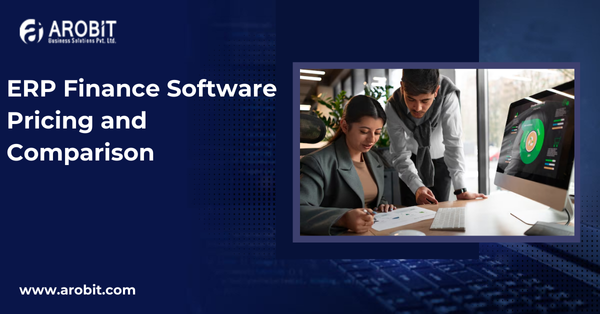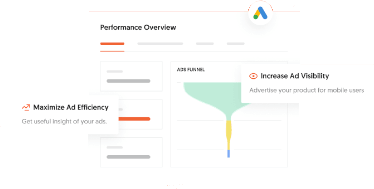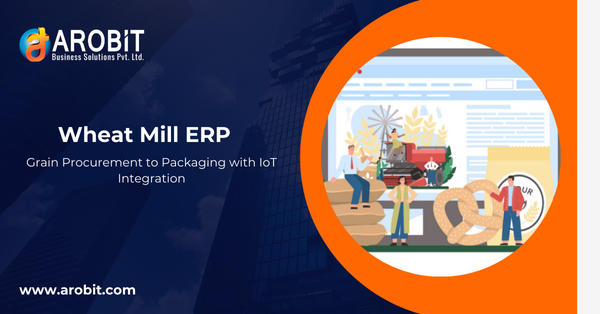Efficient financial management is the bedrock of a successful business. In such a volatile world, using technology to boost financial handling is not a matter of vogue; rather, it is the only choice to think of. ERP finance software has become one such technology that clubs all financial handling processes under one roof. Yet, it is quite a Herculean task to probe into pricing models and compare these pieces of software on their merits or demerits. Herein lies a comprehensive guide to unravelling the enigma of ERP finance software pricing in a bid to bestow upon you everything you need to know while deciding on your business.
Did you know a projection by Gartner by 2025 says companies fully integrating their financial processes with an end-to-end ERP system stand to gain better operational efficiency by 15% and cut down financial close times by 10%? Big gains in finance software have a world of potential to perform a life-changing act.
This blog will address the workings of ERP financial software pricing and establish a mechanism for comparison. Take the opportunity, as a CFO, finance manager, or owner, to read this guide and make decisions that can earn you the maximum returns or the best deal!
Understanding ERP Finance Software Pricing Models
Before undertaking a discussion of how one company measures against another, knowledge of the general pricing models adopted by ERP software vendors would be beneficial:
- Subscription (per user/per month): Under this model, a recurring fee is paid for each individual who accesses the software. This model allows for some predictability in pricing, as well as general scalability that fits the company's size growth. Long-term costs may be higher compared to one-time purchases.
- One-time purchase (perpetual license): This model is more traditional. It entails upfront spending on the licensing of a software package. You will also have to pay ongoing maintenance fees for updates and support. However, the initial investment can cost more than alternatives, especially for a growing establishment.
- Tiered pricing: This is where the price scales based on several different factors, such as the number of users, the number of features, or even the volume of data. This gives many organizations the ability to choose a plan that meets their current circumstances and budget. However, understanding the tiers and their limitations is essential.
- Usage-based pricing: Such a pricing model means that the actual usage is charged for. This could refer to, for example, the number of transactions processed or API calls made. This could be ideal for companies whose usage pattern varies. However, predicting the costs becomes quite tricky under this model.
Bear in mind that these are only the base models, with others existing depending on vendors, including mixtures or variants of the same. Do pay attention to hidden costs that come with the pricing model to avoid confusion in the future, including implementation fees, training costs, customization charges, and ongoing support costs.
Key Factors Affecting ERP Finance Software Costs
Several factors can affect the price of ERP finance software:
- Users: The more users who want to use the system, the higher the cost, especially with subscription-based models.
- Features and modules : ERP systems are often modular, leaving clients the option to choose functionalities based on their requirements; adding modules such as budgeting, forecasting, or analytics will increase the price. Look at the purchase module in ERP, ERP AP (Accounts Payable), etc. All these business modules in ERP are vital to running an organization.
- Deployment model: Cloud-based deployments will typically have lower initial costs but involve ongoing subscription costs, while on-premise deployments will require a large investment in hardware and IT infrastructure upfront.
- Customization requirements: Complicated customizations can add greatly to implementation costs. Reflect on whether most of your needs can be satisfied by the software or whether extensive customization is essential.
- Integration with other systems: Connecting ERP finance software with the already deployed CRM, HR, or any other business application might impose extra costs.
- Vendor reputation and support: Established vendors with excellent reputations, including a broad range of support offerings, often priced at the top end.
An Approach to Compare ERP Finance Software
Follow a Methodical Process When Selecting Your ERP Finance Software:
- Assess Your Needs: Study your business specifications; outline your business priorities and pain points. List which financial processes you want to automate and improve.
- Checklist of Required Features: Once you establish a checklist of features you feel are necessary, identify those about core financials, reporting, analytics, and compliance.
- Request Demo & Trial: After requesting a demo or trial, find out firsthand how the software works. You'll see what the interface is like and how it does what it is intended for.
- Compare Pricing Based on Your Needs: Total cost of ownership for each solution. Please include all costs, such as implementation, training, and support.
- Consider Scalability: Choose a solution that scales with your growth.
- Read Reviews and Case Studies: Read reviews online and case studies to see how other users are doing with the software.
Tips for Negotiating ERP Financial Software Pricing
Don't hesitate to negotiate, for it is the only way to get the best deal from vendors:
- Leverage quotations from competing vendors: Obtain quotations from different vendors to give yourself bargaining power.
- Negotiate the cost of implementation: Negotiating for a fixed price on implementation contracts can also head off overruns.
- Ask about discounts and special situations: Ask whether any discounts are available for such circumstances as early adoption or non-profit organizations.
- Try considering longer contracts: Longer contracts may provide better pricing.
FAQs
Q1. What is ERP finance software, and why is it important to them?
A1. ERP finance software is a complete system that integrates and automates core financial processes and offers real-time insights. It enhances the businesses' ability for operational efficiency, decision-making, and compliance.
Q2. What are generally the benefits of implementing ERP finance software?
A2. Those typically include improved financial accuracy, less manual effort, better reporting and analytics, better compliance, and increases in operational efficiency.
Q3. What are other pricing models of ERP finance software?
A3. As mentioned above, principal pricing models that can be used are subscription-based, one-time purchase, tiered pricing, and usage-based pricing.
Conclusion
The right ERP finance software is a key decision that will significantly dictate the financial health of your business. Price models, factors that influence pricing, and comparison matrices should be well understood by you so that you can find the best-fit solution according to your needs and funds. You may also use a negotiation style to obtain the best deal.
Should you wish to find an ERP software development company in India, or perhaps in particular ERP software developers in India or ERP companies in India, be sure to apply these very principles while deciding on the demographics of your partner. Check their expertise, their experience, and the specific ERP modules that they provide. A good partner will assist you in realizing the maximum value of your ERP finance investment.
Not Sure What ERP Finance Modules Do? Start Here
Before diving into pricing and feature comparisons, it’s important to understand how ERP finance modules function. If you're new to ERP finance, this guide will help you grasp the fundamentals.
Learn what an ERP finance module is.
See How ERP Finance Modules Improve Budgeting
Choosing the right ERP finance software isn’t just about price—it’s about value. Find out how these modules can enhance cash flow management and streamline budgeting.
Discover how ERP finance modules improve cash flow.








